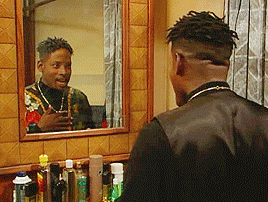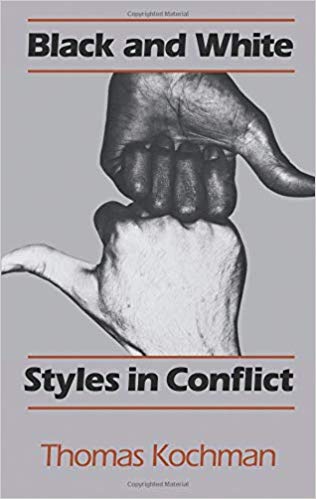Maybe you aren’t from the United States, maybe you don’t know any Black people, or worst of all you do, and you just don’t get it. What are all these people complaining about? Racism doesn’t exist, Black people just need to get their act together.
Welcome. If you are ready to consider the idea that there is a problem, but don’t know where to start, this is for you!

So many discussions about race in this country either assumes that you are well versed in this discussion, (and shames people for having limited knowledge on the topic) or still having the beliefs you grew up with. Lots of minorities tell people just getting into this to look it up on the internet, or send them heavily academic articles filled with shaming rhetoric. This often gives the reader a great sense of white guilt that many feel they can not live up to.
So, they give up. I’m not saying there isn’t a place for this type of writing and ideas but I’m not sure it’s the easiest place to start. These are 3 books that Obsidian Tea suggests anyone curious about race in America, the Black experience, and Black culture start with.
Black and White Styles in Conflict
Why these books? Why these old books? Why these books when only one is written by a Black author? I can hear people getting upset, but hear me out.
I like these books because they talk about race and culture with an interesting perspective. I’ve often found that bias and culture, of Black and white writers alike, can, color the writing of most authors. White writers often miss the point, miss cultural points, and spend too much time wallowing in white guilt. On the other hand, Black writers tend to make basic assumptions about the readers knowledge of Black culture. They assume you know how it works and skip basic cultural ideas that are needed for new audiences.
These books and unique in the face that they do not gloss over basic cultural ideas and elaborate. They all are reasonably short reads and are interesting and aren’t particularly heavy. They are a bit older but I liked that because they are primary resources for people who lived through a time we, now, often think of as from FOREVER ago, when in reality I believe all 3 authors are alive. Many of my secondary suggestions are of various genders, sexualities and often by Black authors, to be followed up by these three books.

I’d suggest you read them in order.
“Black Like Me”
In the tiny section in my local bookstore I happened across this title. I was looking for something interesting and yet light and this was the perfect book. Black Like Me follows a White man in the 60s who is a journalist and gets skin darkening treatments to become a negro. He wants to see if the way the south describes the Negros is accurate and if life is really different beyond the color line. Yes, you may have noticed the premise is PROBLEMATIC as hell. You’d be right. Throughout the beginning of the book he uses outdated language and ideas about Black people, but that’s one of the things I like about the book. We watch a well off white man from Texas experience racism first hand. It’s raw, it’s painful and awkward, he doesn’t shy away from his discomfort and disgust at the treatment of Black people.
He describes many things that Black people today still experience and yet struggle to explain to white people who haven’t experienced it. The way that white Americans will look right through you, or give you the hate stare. The chilling experience of knowing you are in the wrong place, in danger and yet, not knowing where to go. The feeling a living a life where your humanity can be striped from you with just a look or a bit of cruelty and yet, you are helpless to it. He also describes much of Black culture and the communal aspect of it. The behind the scenes helping and reminding each other of our humanity.
The book is raw, and a painful, fascinating read. The author really brings you with him in his experience and faces large amounts of backlash for his writing. It’s a great first read to open people’s eyes to the other side.

“Life on the Color Line”
I was introduced to this book many years ago, as it is actually written by the president of my university. Life on the color line follows Gregory H. Williams as he suddenly finds out that he’s actually Black, not part Italian like he’d been told his whole life. He moves in with his Black father and into the b=Black part of town. His life is turned upside down and he suddenly loses all privilege and is a negro.
This story differs from Black like me because there is no going back, additionally this transition comes at an earlier age. It’s hard to continue to have beliefs about other people when you find out you are apart of those people. It’s hard to watch people treat you differently just because of your parentage. It’s also disturbing for him to realize just how different it is on the other side.
I like this book because the author wasn’t raised Black but is perceived to be. His confusion with this new culture and way of life, combined with the difference in the way that people he previously interacted with treat me post revelation is fascinating. Unlike the first book he isn’t an unknown man. He’s a boy, the same looking boy dropped in a whole other world because he’s part Black.
“Black and White Styles in Conflict”
I talk about this book ALL THE TIME. Personally I think EVERY American should read it. I put it last because it really clarifies some of the things the men in the first two books were talking about. The author, although white approaches both Black AND white culture as a foreign topic. He keeps his biases out of it and simply reports on the cultural styles that are in conflict. He breaks down both cultures in a way that is relatable no matter what culture you are from. Through this book I realize a great deal about my own biases and upbringing, as well as helping me understand White culture better.
This book clarifies many of the ways that the cultures clash, and why. Unlike many white authors it’s not written through the frame of Black culture being a degenerate version of White culture, but instead its own culture with values and rules to be understood.
This is the book that really pushed me to create obsidiantea.com in the first place. It forced me to look at my own culture in a new light. I really had to question how much of my troubles living in white society was me, personally, and me as essentially being a foreigner. It changed an essential way that I interacted and judged the white people in my life. It gave me space to feel compassion I hadn’t felt before. It opened my eyes to how little white people must know about Black culture and I started looking for ways a person could learn about Black culture.
I had trouble finding anything that approached Black culture with the same ability to break down ideas into its smallest details and also not assume it’s readers know anything on the subject. So I decided to create it.

I dare anyone to read all three of these books and not come away being impacted. Possibly even seeing American race relations in a new light. Racism can’t die until we see it for the way it is, subtle, systemic and insidiously intertwined into the very fabric of America.
Have you read any of these books? Let me know what you thought below!



I read Black and White Styles in Conflict at your recommendation, and it was fascinating. I feel like I need to read it several more times to have it all sink in. How culture goes so far beyond popular music, foods, celebrations, etc. And that understanding someone’s culture, or combination of cultures, can help you communicate better. How much misunderstanding is built into the big, national conversations we’ve been having for decades and centuries.